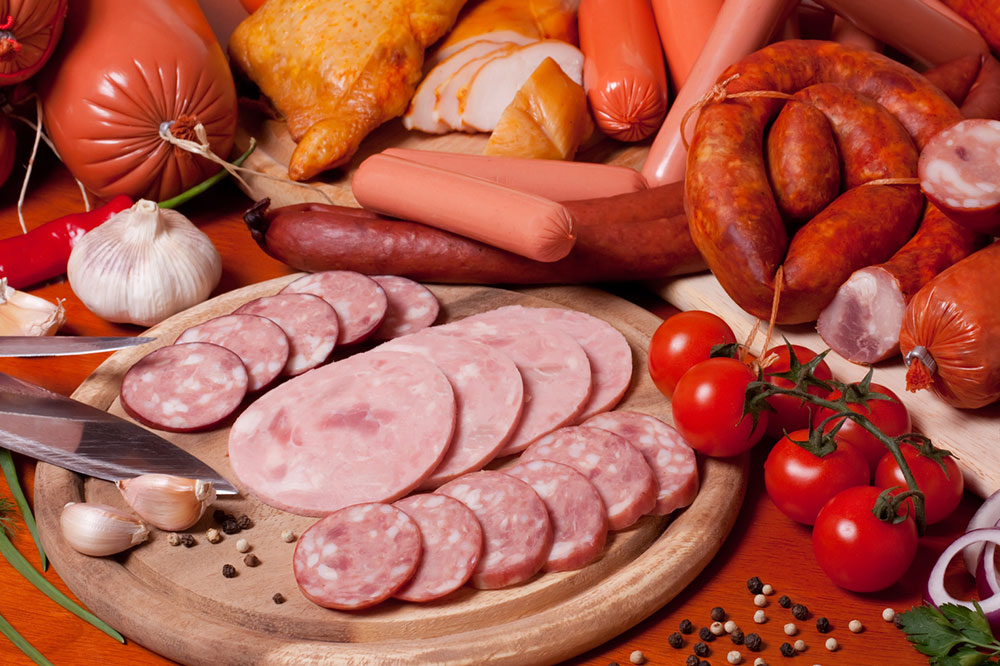7 Food Items to Avoid for Managing Diabetes

According to the American Diabetes Association, by 2050, nearly 29 million people will live with diagnosed diabetes. While genetic predisposition and age contribute to one’s risk for acquiring type-2 diabetes, obesity due to an unhealthy lifestyle and nutritional regime plays a significant role in this. So let’s get to know how you can make simple lifestyle changes and prevent the risk of type-2 diabetes and gain other health benefits too.
Food and diabetes
Diabetes is a severe and chronic condition characterized by abnormally high blood sugar levels. It happens when your body cannot produce enough insulin or effectively utilize it. It is known as type-2 diabetes. When your body doesn’t generate any insulin, it is called type-1 diabetes. However, some research papers indicate a strong link between unhealthy BMI and diabetes. An unhealthy BMI, which results from consuming high amounts of sugar for a long time, is directly proportional to your risk of type-2 diabetes. A nutritionally balanced, low-calorie meal plan is key to body mass management. Any amount of body mass loss helps reduce the risk of type-2 diabetes. Here are some foods that you should avoid to maintain a healthy lifestyle.
Processed meats
According to experts, eating processed meat over time increases your risk of type-2 diabetes by 19 percent. These include meats such as bacon, deli meats, or sausage. Not just this, these meats also increase your risk of cardiovascular diseases. The main reason for this is that processed meats contain almost four times more sodium and 50 percent more nitrate preservatives, which directly impact your heart health and the ability of your body to tolerate glucose. In addition, you can choose healthier meats such as chicken, turkey, and fish such as trout, tuna, frozen cod, shellfish, lobsters, scallops, and shrimp.
Sugary drinks
One of the most important recommendations for everyone is never to drink sugar. Experts believe that sweetened drinks may give rise to almost two million cases of diabetes in the country over the next ten years. These drinks include packaged fruit juices, carbonated drinks, sweetened teas and coffees, sports drinks, and more. These drinks are not just high in sugar but also low in nutrition. They lead to an unhealthy BMI and increase your body’s resistance to insulin. To prevent this, make water your primary beverage to stay hydrated. Opt for low-sugar alternatives such as low-fat milk, unsweetened tea and coffee, coconut water, and sugar-free sodas.
Trans and saturated fats
Studies note that a high intake of saturated and trans fats promotes insulin resistance in your body and, ultimately, type-2 diabetes. Therefore, limiting the sources of these fats, such as lard, butter, meat-based gravies, margarine, and shortenings, is essential. You should also avoid high-fat dairy products such as cream, ice cream, whole-fat milk, and full-fat cheese. The American Diabetes Association recommends using monosaturated fats such as avocado, canola oil, olive oil, peanut butter, and safflower oil. Ot her good fats are polyunsaturated fats. These include chia seeds, oily fish, walnuts, flaxseed oil, etc.
Processed carbohydrates
Carbohydrates are an excellent source of energy for your body. However, not all carbs are ideal for your body. For example, processed carbs increase insulin resistance and blood sugar levels, ultimately leading to type-2 diabetes. Refined carbohydrates also increase one’s risk of developing heart disease. Therefore, one should avoid white rice, pasta, crackers, and white bread. In addition, one can opt for healthy carbs such as quinoa, barley, whole-wheat pasta, and brown rice.
Convenience foods
Hectic schedules directly contribute to dependence on convenience foods, specially packaged ones. For example, people often tend to pick up foods off the shelves of supermarkets instead of cooking fresh meals at home. Packaged foods contain substantial amounts of saturated fats and sodium. Avoid picking up foods such as burgers, fries, pizzas, pre-packaged desserts, etc. It also includes breakfast cereals, ice creams, and more. Instead of depending on convenience foods, include freshly-made meals in your routine. Include smoothie bowls, plain yogurt with fruit, fresh fruit smoothies, etc., in your meals. Furthermore, opt for sweet potato fries, buns with wholewheat bread, and freshly made fruit drinks.
Full-fat dairy
Dairy is essential to your meal plan because it is rich in calcium and helps build healthy bones. However, when not chosen carefully, dairy can cause your insulin levels to rise, leading to an increased risk of type-2 diabetes. Dairy fat is rich in palmitic acid and fatty acids, leading to a spike in your blood glucose levels. Instead of full-fat dairy products, you should opt for low-fat alternatives. These include Greek yogurt, fat-free milk, cottage cheese, skimmed milk, etc.
Artificial sweeteners
It is a popular notion that artificial sweeteners are ideal for people with type-2 diabetes or at an increased risk of it. However, these sweeteners increase your metabolic dysregulation and hamper your body’s response to glucose spikes. So, instead of helping you lose body mass, they may make you more prone to an unhealthy BMI. There are several better sugar options that you can choose from. They are natural and do not interfere with your metabolism. You can choose alternatives such as Stevia, date sugar, coconut palm sugar, and monk fruit extract.
Diabetes is a complex condition that has severe consequences for your health. However, the silver lining is that it is preventable with simple lifestyle changes such as those mentioned above. Couple this with stress management, exercising, and healthy lifestyle habits, and you can lead a healthier and happier life. Make sure to consult your doctor before changing your food regime.






